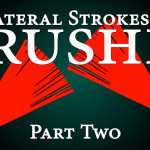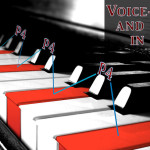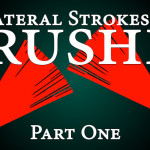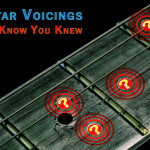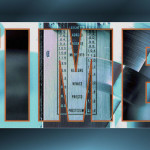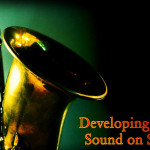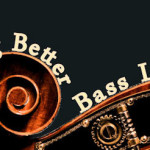Jack Walrath: Five Things I Wish I Knew as a Young Musician
Back in July our Michael Feinberg published an article titled 5 Things I Wish I Was Told in Music School. That turned out to be – by far – the most viewed post of our blog, which made us realized that musicians out there are particularly interested in learning from others’ experiences. Coming from that perspective we decided to make a […]
Jazz Brushes Technique: Lateral Strokes (part two)
Applications of Long and Short Strokes with Jazz Brushes In the first installment of this two-part post on jazz brushes I explained how to produce long and short strokes with lateral motions, and I promised that today I would introduce ways to use this technique musically and creatively. Here I am to keep my word and share with […]
Voice-leading and Comping in 4ths
A More Modern Approach to Comping Hi there, this is a simple but super effective way of organizing voicings to get access to quick, solid voice-leading and to achieve a more modern approach to comping. This ‘sound’ has been popularized by Bill Evans, Herbie Hancock, McCoy Tyner and Chick Corea, among many others, and has […]
Jazz Brushes Technique: Lateral Strokes (part one)
Becoming Familiar with Lateral Short and Long Strokes with Jazz Brushes Back in September I wrote a post titled An Introduction to Brushes, where I examined how to produce long legato sounds using circular motions, an essential part of jazz brushes technique. In this post I will describe another important area of brush playing: staccato sounds. The […]
Why People Hate Jazz: The Loss of Objectivity
Drawing Parallels Between Conceptual Art and Free Jazz I stumbled across this video today and couldn’t help but draw parallels between conceptual art and free jazz. As a music student I loved free jazz and the avant garde, the more “out” the more I enjoyed it. As I developed my craft, learned the history of […]
Jazz Guitar Voicings You Didn’t Know You Knew
Hey peeps, I’m coming to you through this first post to talk a little bit about one of the most important things in group playing: providing accompaniment, or “comping”, in particular, voicings. In a jazz playing context, if you’re a harmonic instrument (guitar, piano etc) you’ll find yourself more often than not taking up the […]
Improving Your Time and Rhythm: The Foundations of Musical Expression
As a developing musician, improving your time and rhythm is one of the most important technical aspects to prioritize, regardless of what instrument you play. After all, it is thanks to time that we can make sense of music, and if we didn’t organize it in some fashion (rhythm), all we would hear would be […]
Developing a Personal Sound on Saxophone
(Original saxophone picture courtesy of Elisabeth D’Orcy) One of the most common refrains we hear regarding jazz is that the most important thing is to have your own sound. This is pretty much considered the holy grail of jazz playing. With it come the keys to the kingdom. Without it we are condemned to craftman-ship […]
Building Better Bass Lines
The role of the bass in the jazz ensemble is to provide harmony. We do this through our choices of root notes and motion between chords. As a melodic, rhythmic, and harmonic instrument there are a lot of ways we can direct the ensemble and comp (accompany/compliment) for the soloist. Here are some exercises I […]
What a Japanese Pasta Chef Taught Me About Jazz
Lessons Learned Playing Bass On Tour in Japan Growing up in Jersey (cue the Sopranos theme) and living in NYC, I’ve had my fair share of great pasta cooked by Italians. You could imagine how surprised I was, when the best cooked pasta dish I had ever eaten, was prepared by a Japanese chef in Chōshi, […]


